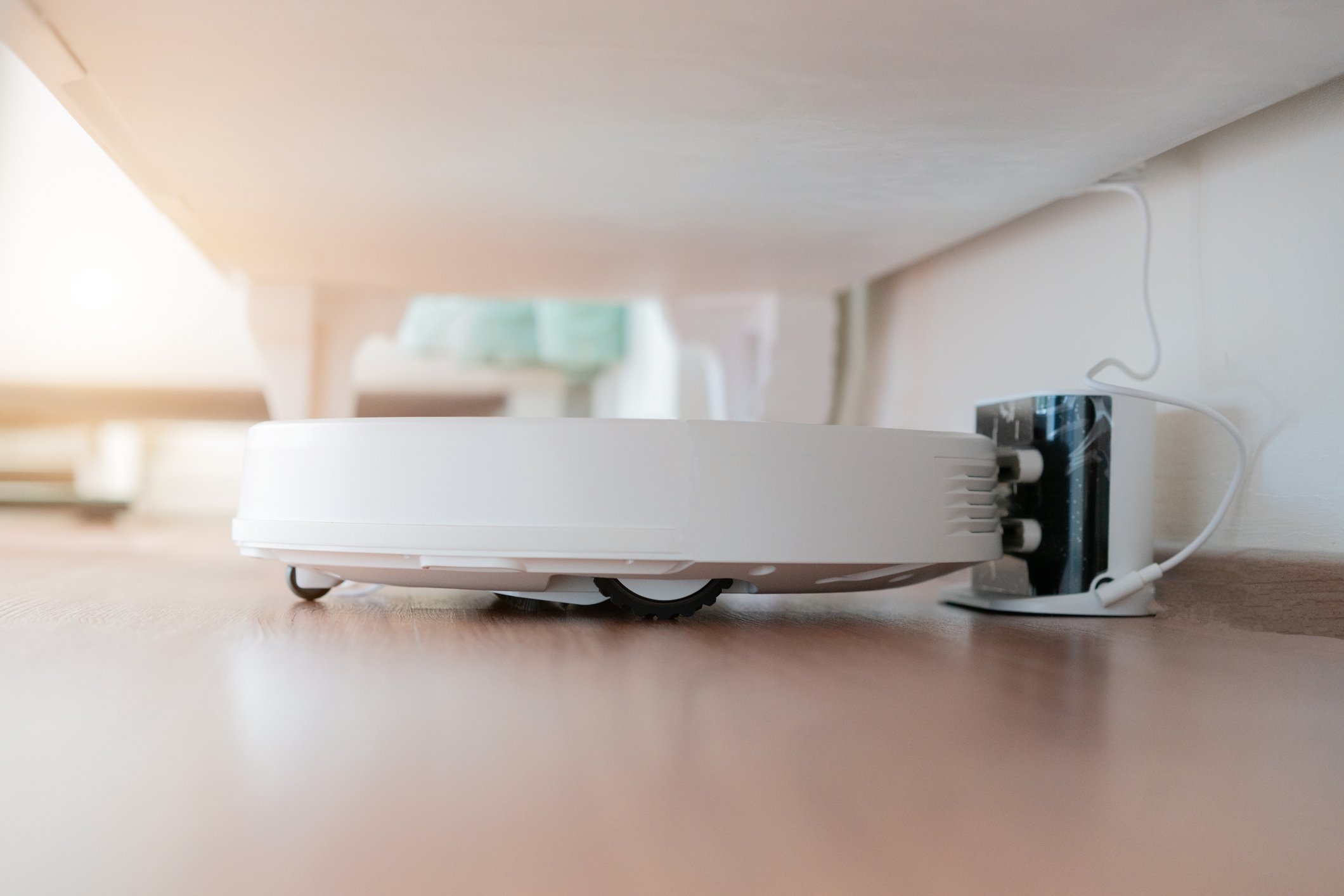Quick: Name a smart speaker! You probably came up with Amazon's (AMZN +1.60%) Alexa or maybe Alphabet's (GOOG +1.88%) (GOOGL +1.72%) Nest. And well you should: These top sellers -- and the giant tech companies behind them -- are leading the way in smart home device sales.
You probably didn't say Roomba, which makes sense, because a Roomba's a robotic vacuum, not a smart speaker. But Roomba manufacturer iRobot (IRBT +0.00%) is poised to benefit from a trend that Alexa and Nest are already riding. Here's how iRobot may be the perfect under-the-radar play for fans of smart home devices.

In addition to being the top robotic vacuum, a Roomba can also transport pets. Image source: Getty Images.
The smart home is getting smarter
The trend in smart home devices is rapidly growing, and smart speakers like Alexa are just the tip of the iceberg. Smart thermostats, smart lighting fixtures, and even smart doorbells have already found their way into consumers' homes. Smart speaker sales in particular are soaring. According to research firm Strategy Analytics, Q2 2019 saw a 96% year-over-year increase in global smart speaker sales, with increases in all global regions.
But it's not just smart speakers: Smart devices of all types are primed for huge growth. In March, data analysis firm IDC released a report forecasting that smart speakers would see a 13.6% compounded annual growth rate (CAGR) between 2019 and 2023, but smart home devices overall would see a 16.9% jump.
Despite more than 70 million people in the U.S. now owning at least one smart device, the trend is showing no signs of abating, says David Mercer, vice president of Strategy Analytics, in a press release:
Demand for smart speakers shows little sign of plateauing, even in more mature markets like the US where ownership has now reached 30% of households. Huge potential remains in untapped regions where local language support has been limited. The arrival of language localized devices in large markets like Russia, Mexico and Brazil will support further demand growth in the coming months and years.
Ultimately, the global smart home market is poised to grow at high double-digit rates through at least 2026, according to the Market Research Store, ultimately hitting $163 billion in that year. That's up from just $24.1 billion in 2016.
How iRobot stands to benefit
iRobot's Roombas are a form of smart device in their own right. The newest models, though, can interact with other smart devices from Amazon. If you have the right combination of Amazon Echo and Roomba, you can say, "Alexa, vacuum the living room," and your little robotic vacuum will spring into action. These "connected" robots are already selling well. In fact, by the end of 2019, iRobot anticipates that it will have sold more than 9 million of them.
Clearly iRobot hopes to sell its robots -- which also include robotic mops, pool cleaners, and lawn mowers -- as components of a fully integrated smart home system. Imagine being able to tell your robotic servants to mop the kitchen floor and mow the lawn from the comfort of your sofa. To make this vision a reality, iRobot is developing strong partnerships with smart home heavy hitters Amazon and Google.
Amazon and iRobot have close ties already: A few months ago, Angle was the keynote speaker at re:MARS, Amazon's AI and robotics event. iRobot has also been working with Google to develop, according to Angle, "new, innovative smart-home experiences that leverage a broader understanding of the home's space, enabled through Roomba's spatial awareness of the home." The company has also launched a program that allows third-party developers to leverage iRobot's proprietary room-mapping and home understanding technology, which has plenty of other potential uses. These include augmented reality applications and assistance for people with disabilities.
As iRobot continues to develop these partnerships and make technological advances to its products, it should see robust sales growth.
Uptrend vs. downtrend
Even though the trend in smart home devices is working to iRobot's advantage, there's another short-term trend that many investors seem to be focused on: the escalating trade war with China.
So far, the trade war hasn't seemed to have much impact on iRobot, which posted impressive top- and bottom-line growth in the second quarter of 2019. That may change moving forward, though. On the Q2 earnings call, Angle blamed tariffs for a cut in the company's projected revenue growth in 2019. The market reacted by punishing the stock. Year to date, shares are down 26%. It's worth noting, though, that even with its forecast revised downward, iRobot's revenue is still slated to grow by double digits for the year.
This dip may be a buying opportunity, as the stock's sitting at its lowest price point in more than a year. While there's no way to know how long the trade war with China will last, the smart home trend seems to be a long-term and durable one, and that's likely to benefit iRobot long after the current trade issues subside.
Think long-term
In the short term, tariffs are going to take a bite out of iRobot's growth plans. But the more powerful long-term trend toward the smart home is likely to work in the company's favor long after the tariffs are a distant memory.
Buying in now might expose an investor to some short-term tariff-induced volatility, but long-term investors should be intrigued by the stock's current bargain price.








